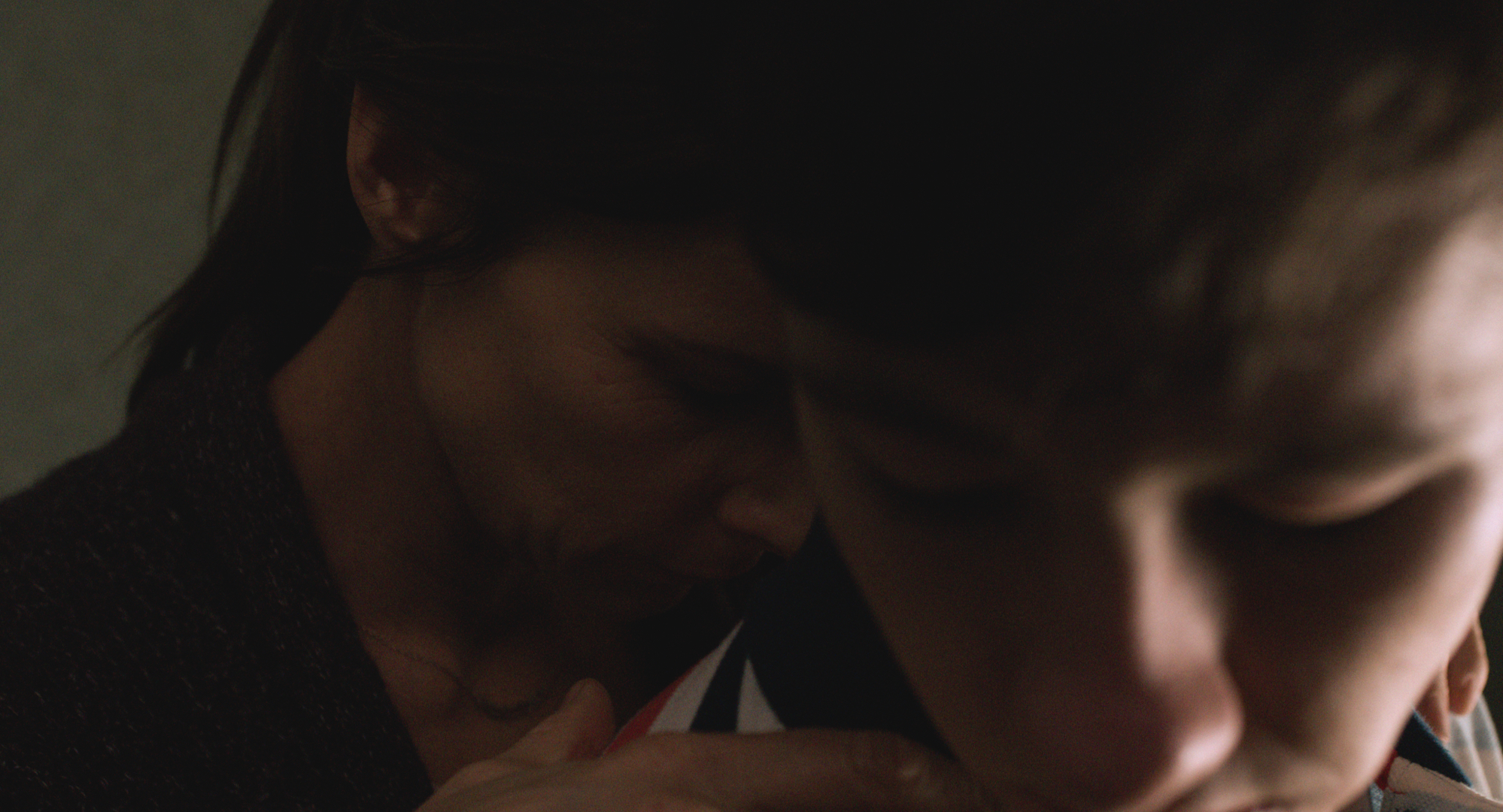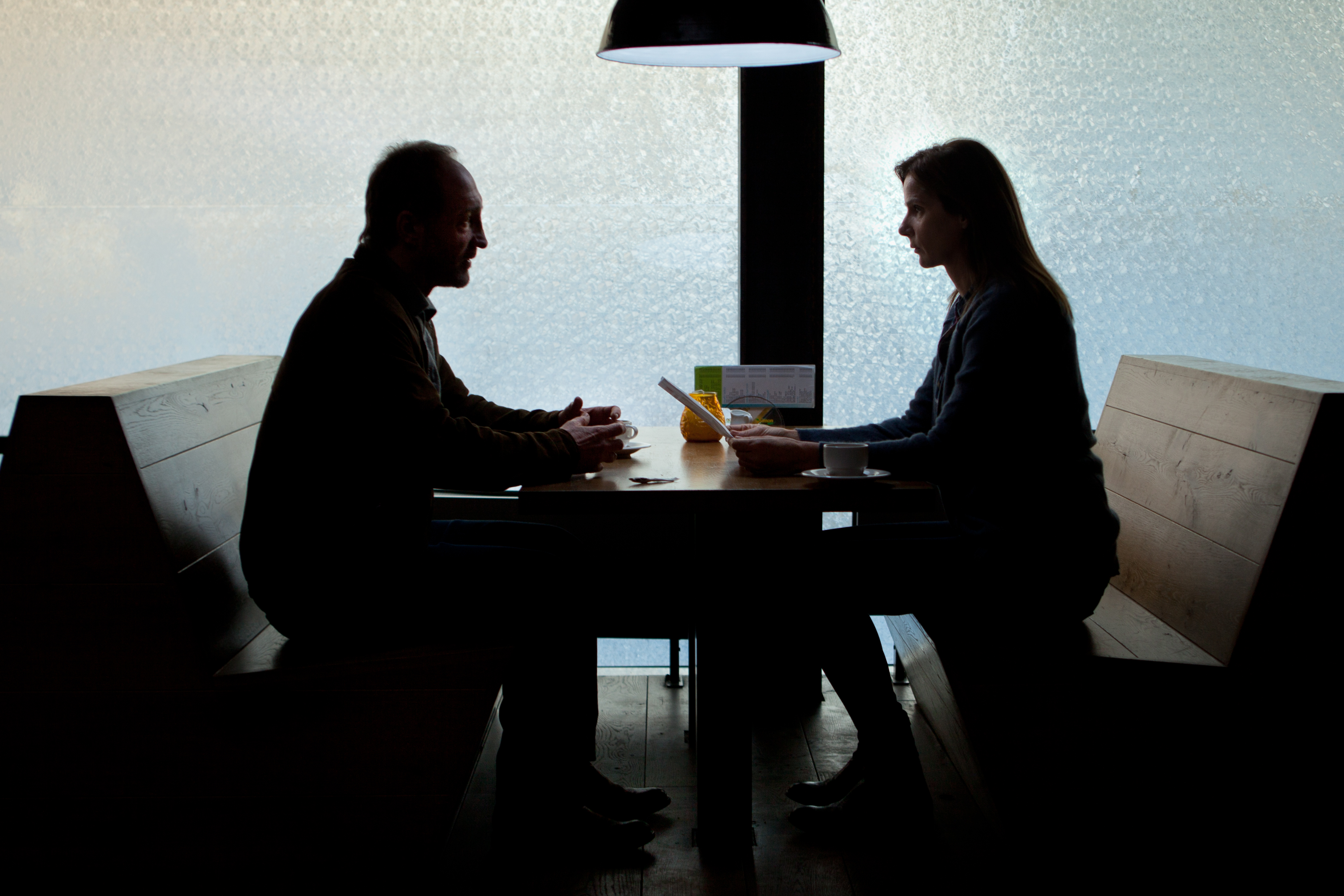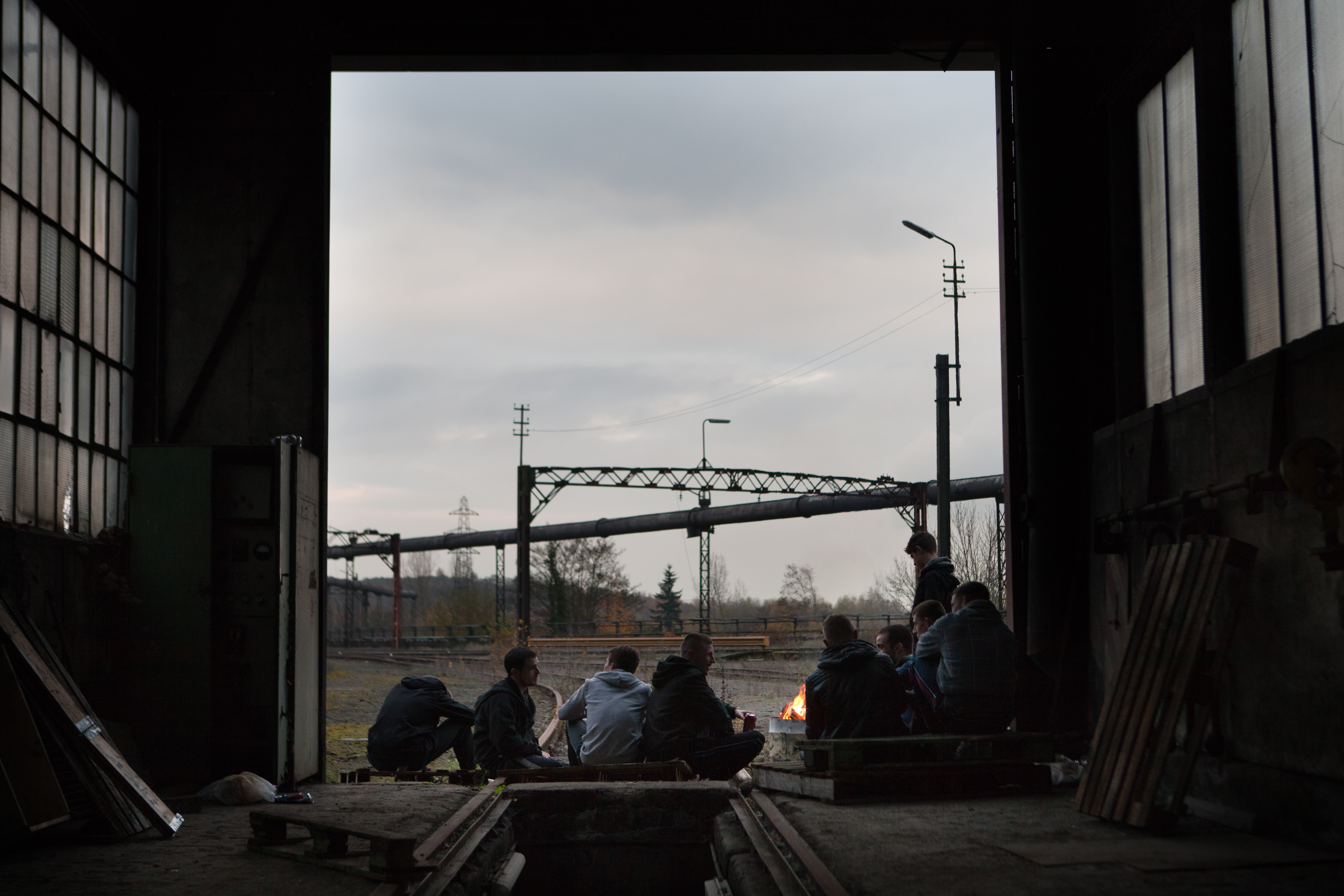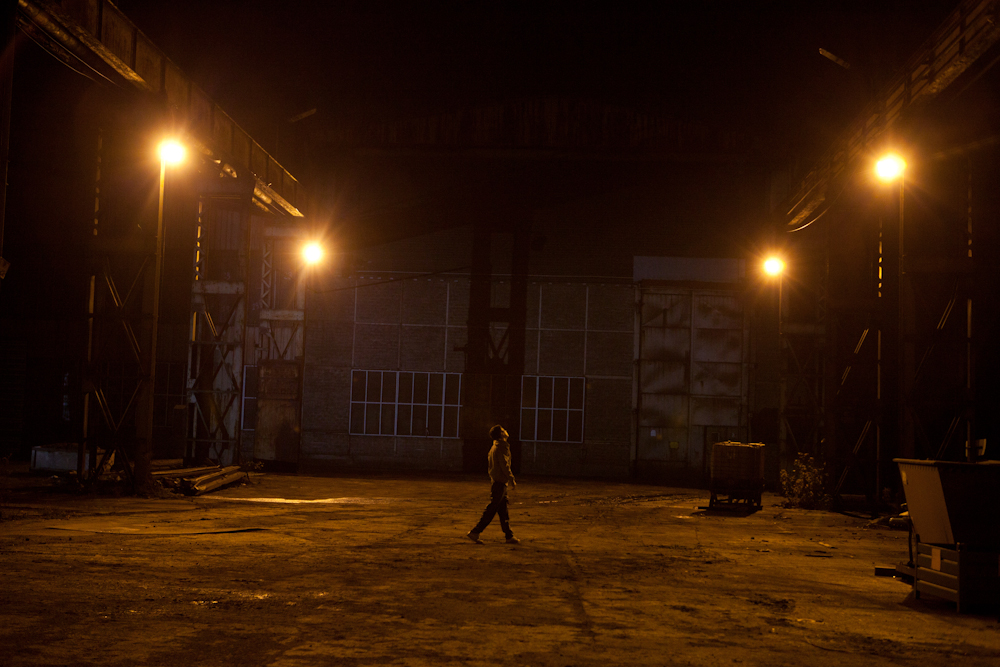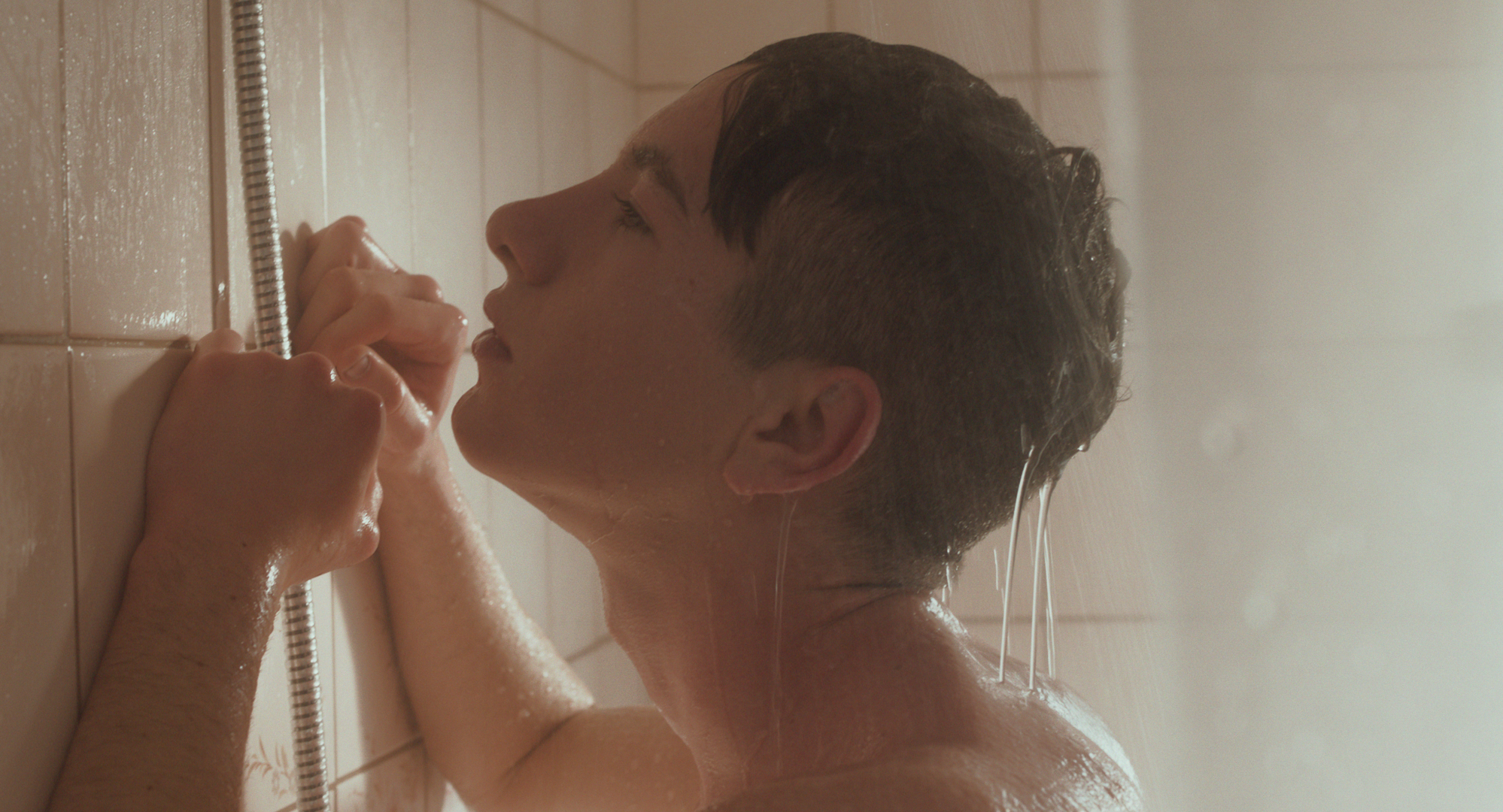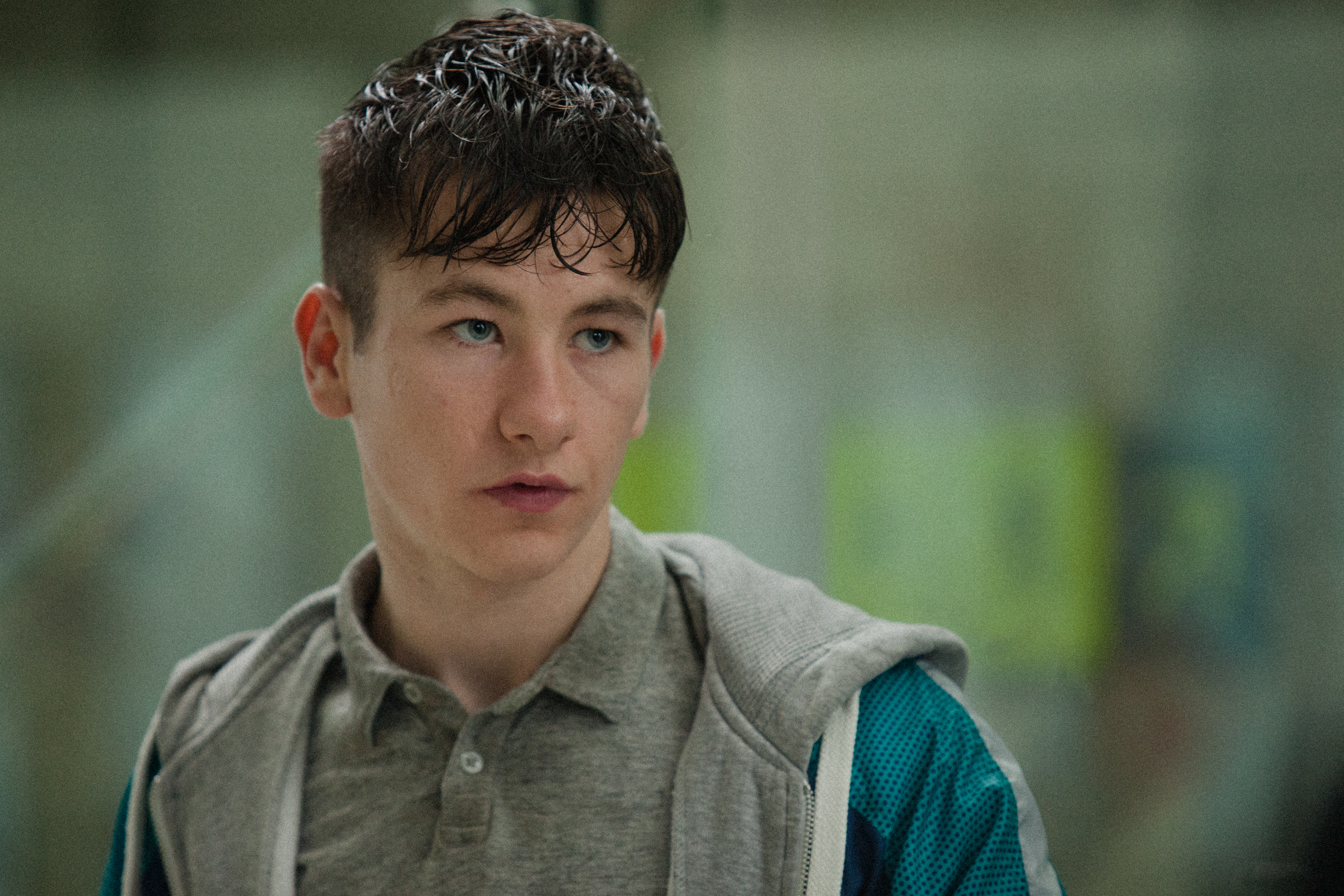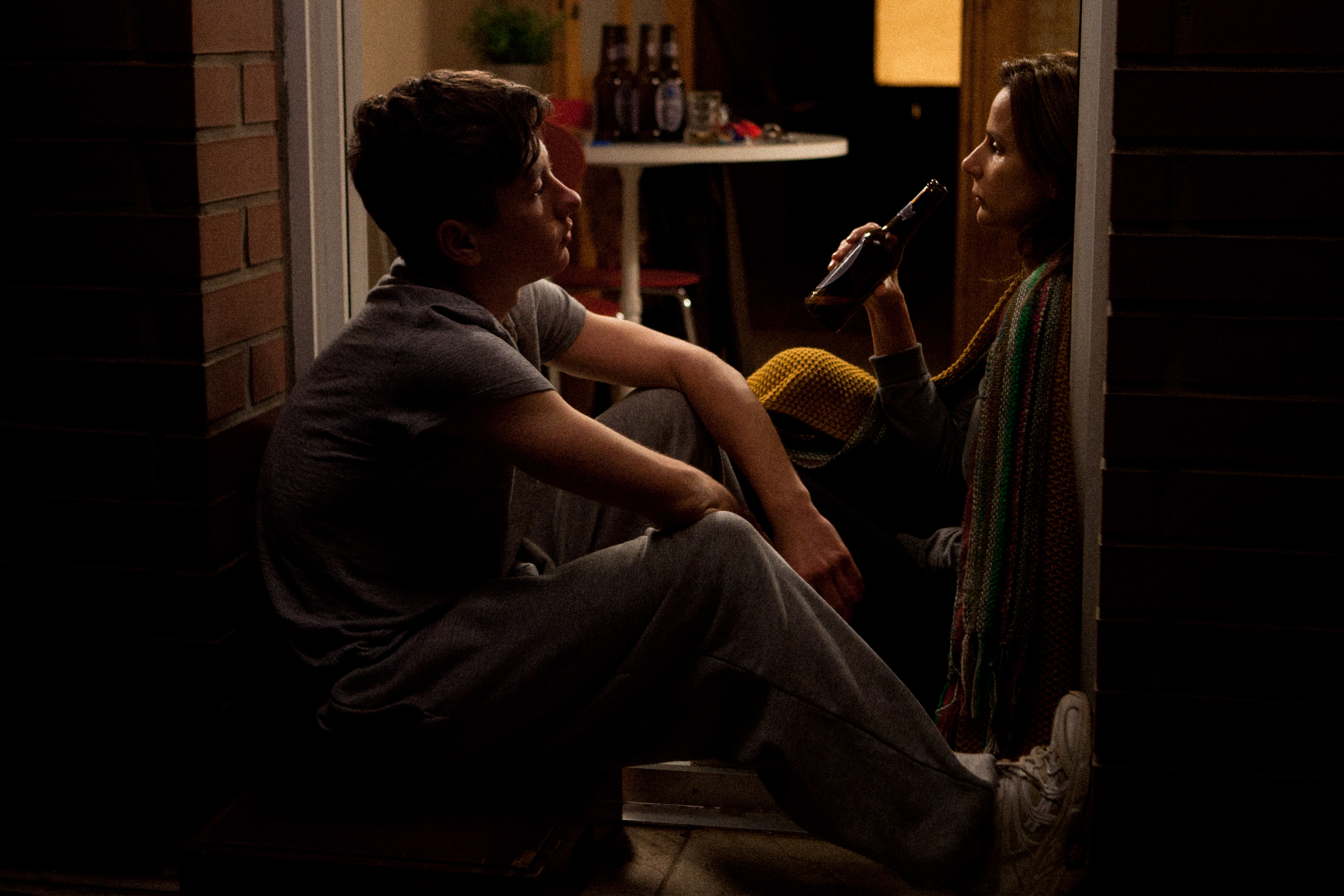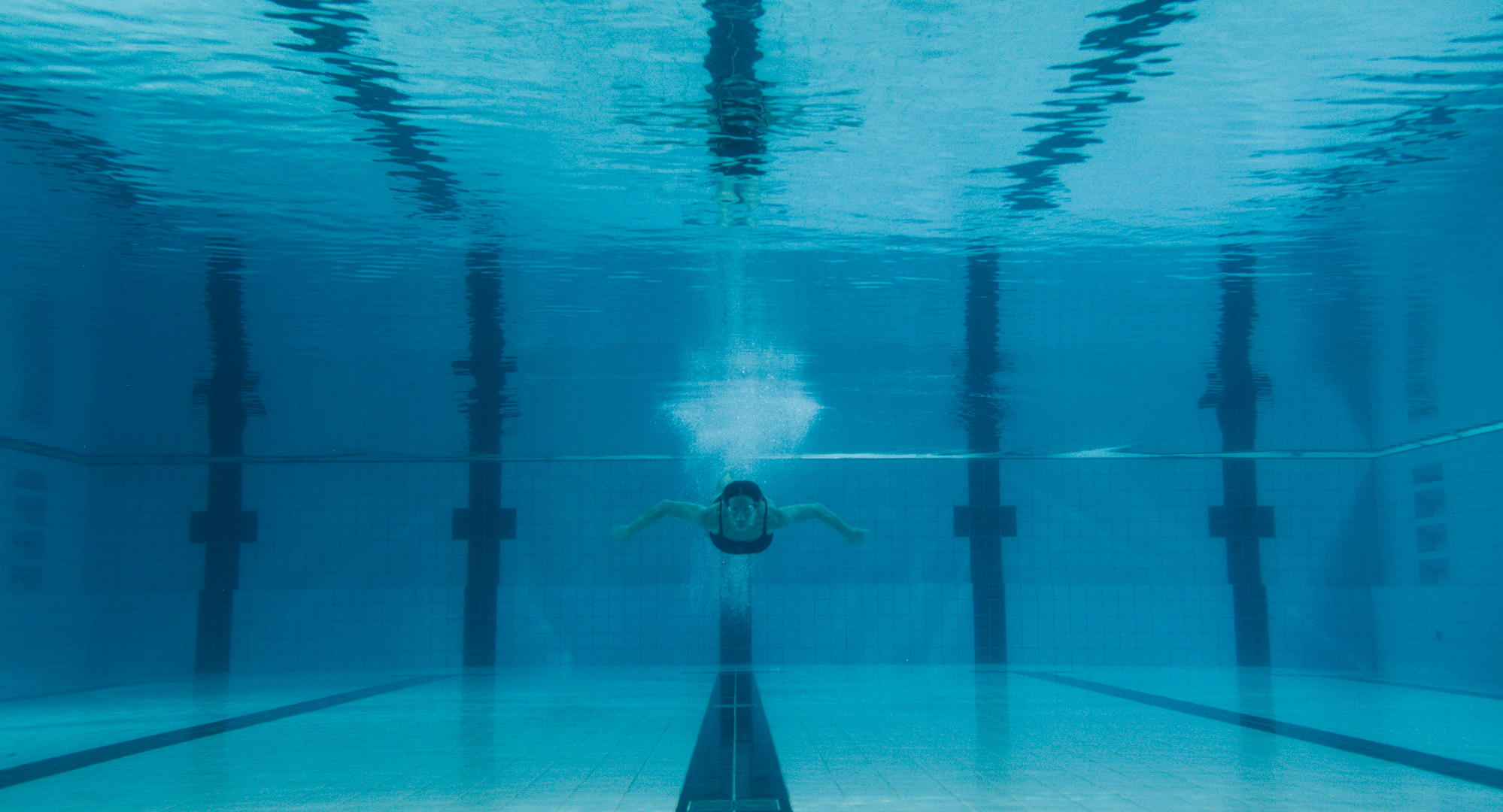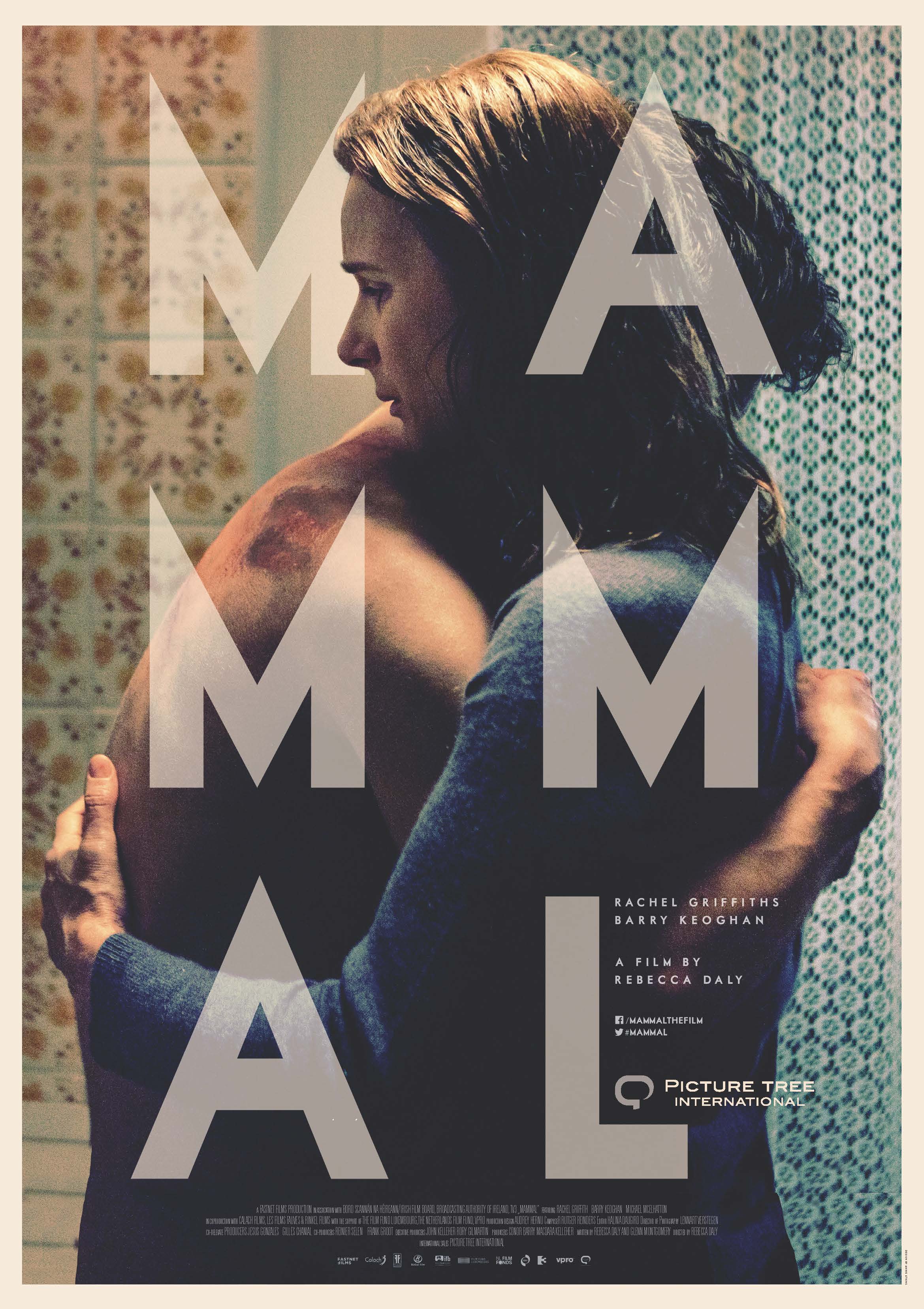Mammal
Synopsis
Margaret, a forty year old single woman living in Dublin, learns that her 18 year old son, who she left as a baby, has been found dead.
Enduring this unsettling grief privately, Margaret escapes daily to the local swimming pool.
One day at the pool she runs into Joe, a homeless youth she took care of late one night when she found him injured outside the charity shop she manages.
Margaret offers Joe a room in her house and soon finds herself experimenting with motherhood on him.
Margaret’s ex-husband, Matt, starts to turn up randomly in her life. He pursues her to feed his grief and for a time, out of guilt, she complies.
As Margaret and Joe’s mutual reliance grows they begin to confuse the boundaries between parental affection and sexual intimacy. Their tentative trust is threatened by the escalation of Matt’s grieving rage and Joe’s involvement with a gang of violent youths.
Characters
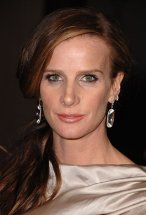 Margaret (Rachel Griffiths)
Margaret (Rachel Griffiths)
Margaret leads a relatively quiet, contented life. But she has a secret: when Margaret was a young woman she left her baby with his father and hasn’t seen him since.
Margaret was a 24 year old Australian woman living in the middle of rural Ireland, isolated from friends and family and her older husband, Matt, who travelled frequently for work. She experienced some post-natal depression and was overwhelmed by her often upset child. Her in-laws constantly reminded her of her inadequacies as a mother. She did not bond with her baby, she didn’t know how to hold him and frequently saw him more as a screaming object than a small person in need of her care, sometimes she thought about throwing him out the window. She finally decided it would be best for both of them if she left. Upon leaving Margaret chose not to move back to Australia and instead set up home in Dublin only a few hours drive from where her child lived; this proximity became a kind of self-imposed penance. Margaret’s feelings around leaving her child are complex: she felt inadequate, incapable, overwhelmed, detached and ultimately that she could not and did not want to be a mother. Guilt, fear and a feeling that it was too late prevented her from attempting to see him in later years.
In the context of Mammal most of this is backstory – the film is not about how a woman leaves her child but how a woman copes with the death of the child she abandoned as a baby. Up until his death the possibility of meeting or even seeing him at some point still existed, if she could bring herself to attempt this – his death marks the death of any potential between them. She carried him and gave birth to him, but she didn’t mother him, she doesn’t feel the right to grieve – she doesn’t know how to grieve the boy she didn’t know how to mother. Echoes of the mother she might have been come through in her attempts to care for Joe.
Margaret experiences a closeness with Joe that she hasn’t with anyone for a long time – they love each other in a hungry, tender, desperate, exposing way. Ultimately as Margaret begins to accept her son’s death and that he was hers, at least in part, she and Joe separate.
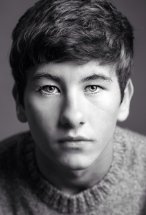 Joe (Barry Keoghan)
Joe (Barry Keoghan)
Joe is 17, from a working-class single parent family. His mother raised him alone and he has had little contact with his father. Early in his adolescence Joe’s mother met another man. They quickly had children, disrupting the tight unit of Joe and his mother. Finally after intense clashes with his mother’s boyfriend Joe ran away from home. When Joe ran out of money; he joined a gang of youths who mug men looking for sex.
Wiry, energetic, coiled, opportunistic, half-boy half-man, Joe’s life is about survival. When Margaret invites him to move in with her, he sees possibility: a break from the streets and perhaps there is more to exploit in her/ her home. But Margaret’s kindness draws Joe to her. He begins to pursue her sexually, the only way he has of expressing his attraction to her. Meanwhile the pull of the gang is strong and keeps drawing him back to the streets.
Matt (Michael McElhatton)
Matt is a charismatic man, a salesman, someone who never had a problem getting what he wanted from women. He was in his mid-thirties when he married Margaret, deciding that it was time to settle down. After the wedding he quickly went on the road again for work and was effectively oblivious to how Margaret struggled at home. Margaret and her needs always eluded him somehow; being perfectly happy himself and confident that he was providing amply for his new family he never tried very hard to work her out.
He tried his best to parent Patrick alone and for the most part their relationship was fairly typical although underlined by a pressure created by Margaret’s absence; he was sometimes too interfering in an attempt to over-compensate. When Patrick goes missing he is left wondering if he failed him too.
Matt is a broken man when he arrives back into Margaret’s life. Patrick, like Margaret before, has left him and he can’t help blaming her for that or in some part for Patrick’s death when he learns of it later. He is devastated by the loss of Patrick; full of anger and pain. Yet he is drawn to Margaret, being around her satisfies his grief and relieves it temporarily; he wants to control her and possess her, to exert some kind of control as his life is pulled from under him.
| Rachel Griffiths | … |
Margaret
|
|
| Barry Keoghan | … |
Joe
|
|
| Michael McElhatton | … |
Matt
|
|
| Nika McGuigan | … |
Ann Marie
|
|
| Johnny Ward | … |
Sully
|
|
| Joanne Crawford | … |
Jean Cunningham
|
|
| Aoife King | … |
Claire
|
|
| Rachel O’Byrne | … |
Lucinda
|
|
| Annabell Rickerby | … |
Shop Assistant
|
|
| Directed by | |
| Rebecca Daly | |
| Writing Credits | |
| Rebecca Daly | |
| Glenn Montgomery | |
| Produced by | |
| Macdara Kelleher | producer |
| Conor Barry | producer |
| Jesus Gonzalez-Elvira | delegate producer |
| Gilles Chanial | delegate producer |
| Reinier Selen | co-producer |
| Frank Groot | co-producer |
| Cinematography by | |
| Lennart Verstegen | |
| Film Editing by | |
| Halina Daugird | |
| Casting By | |
| Nick McGinley | |
| Amy Rowan | |
| Production Design by | |
| Audrey Hernu | |
| Art Direction by | |
| Mark Kelly | |
| Costume Design by | |
| Uli Simon | |
| Makeup & Hair Department | |
| Fabienne Adam | key makeup artist |
| Gerda Koekoek | key hair stylist |
| Assistants Director | |
| Alexandre Brown | first assistant director |
| Harald Rude | second assistant director |
| Laurent Prim | third assistant director |
| Art Department | |
| Thomas Pinaire | carpenter |
| Olivier Wojcik | head painter |
| Sound Department | |
| Leo Franssen | sound recordist |
| Patricia Gómez de Juan | boom operator |
| Marco Vermaas | sound designer |
| Ingo Dumlich | sound editor |
| Mike Butcher | sound re-recorder |
| Ronnie van der Veer | foley artist |
| Tom Nestelaar | foley recordist |
| Special Effects by | |
| Ken Fitzke | special effects supervisor |
| Patrick Ungeheuer | special effects technician |
| Stunts | |
| Micha Mann | stunt coordinator |
| Donal O’Farrell | stunt coordinator |
| Robert Becker | stunt player |
| Camera and Electrical Department | |
| Vitalijus Kiselius | gaffer |
| Daan de Boer | Best boy |
| Jean-François Roqueplo | key grip |
| Thierry Ramanana | grip |
| Joel Conroy | underwater camera operator |
| Costume and Wardrobe Department | |
| Carmen Di Pinto | wardrobe supervisor |
| Nikki Connor | wardrobe assistant |
| Editorial Department | |
| Mark Russell | assistant editor |
| Other crew | |
| Aoife McGonigal | associate producer fastnet films |
| Jenny O’Brien | production executive fastnet films |
| Ian Jackson | head of development: fastnet films |
| Sacha Gertsik | Development Executive for Rinkel Film |
| Raoul Nadalet | d.i producer |
| Marie-Anne Theriez | post-production co-ordinator |
| Tiago Hof | location manager |
| Jessica Heery | location assistant |
| Justine Thomas | location assistant |
| Nuno Pimenta | additional driver |
| Bertrand Levy Gorgeot | extra location assistant |
| Tewes Jerome | studio manager |
Production Companies
Distributors
- Wildcard Distribution (Ireland)
- Cinéart (Benelux)
- Picture Tree International (World)
- TV3 (Ireland)
- VPRO (The Netherlands)
Financiers


